Few recent filmmakers have risen as a household name quite as rapidly as Denis Villeneuve. Following a run of arty and visually dynamic films made in the Canadian film system that ended with his Oscar-nominated “Incendies,” Villeneuve migrated to Hollywood in 2013, kicking off with a run of cerebral but grim studio thrillers (most big hits) beginning with “Prisoners,” “Enemy,” “Sicario” and “Arrival,” blending art-house instincts with exacting genre storytelling. And by creating improbably great sequels and/or adaptations for “Blade Runner” and now “Dune,” the size and intensity of his devotees grow with the same holy fervor as the followers of Paul Atreides.
Unlike the recent glut of pop entertainment, Villeneuve foregrounds theme, character, and the cinematic qualities of his storytelling above all else: he engulfs his characters in big sounds and towering images, frequently working with the top cinematographers (Deakins, Young, Fraser) to do it. His movies can feel so dark and full of dread that it’s like they emit an apocalyptic frequency, and he shares with Christopher Nolan a desire to overlay booming, percussive scores over sweeping tableaus. Between his gripping set pieces and elegant shot design, Villeneuve makes sure you know what his movies are about (they are rarely subtle), and he’s sometimes willing to sacrifice narrative logic to do it. He likes to make a point.
Roger Ebert nailed the essence of Villeneuve’s movies better than most in this paragraph from his review of “Incendies,” which tells you almost everything you need to guess how you’ll feel about Villeneuve’s work: “The film’s ending, which you will not learn from me, is stunning in its impact. I am not sure it quite works out in terms of strict logic, but logic can be forgotten when the purpose is revelation. And that revelation, when it comes, lays bare the pathos of “justified” murder and the pathology of cruelty.” For me, this singular combination of elements usually leaves me breathless and deeply moved, worlds that operate by emotional and thematic sense more than pure plot. As a result, Villeneuve has slowly built one of the most impressive filmographies of any filmmaker today –– and one I enjoy returning to often.
With “Dune: Part Two” opening this week to critical acclaim and poised for box-office glory, it’s the perfect time to dive in and rank his films. But first, a quick note: I like or love all these movies, and as with all rankings, they are always in flux. Here is my ranking of Villeneuve’s films from the worst to his very best…
11. “August 32nd On Earth” (1998)
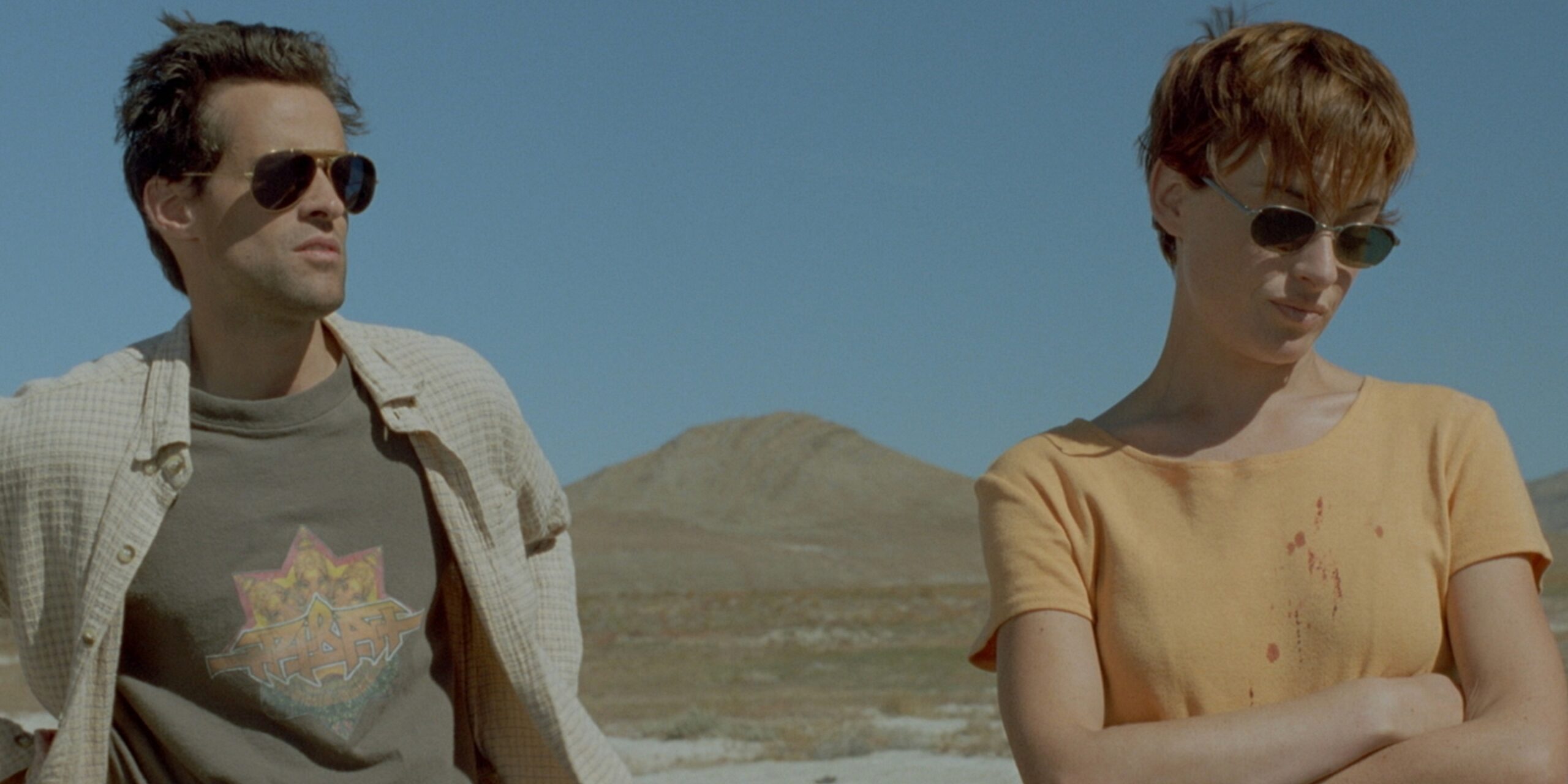 Directed with the roguish punk energy of a new filmmaker with something to prove, Denis Villeneuve’s feature debut brings the deconstructive playfulness of 1960s Jean-Luc Godard (Pascale Bussières even has the classic Jean Seberg pixie cut) with the poppy aesthetics of MTV. We follow a woman who, after surviving a car crash, decides she must become pregnant. She asks her best friend, who reluctantly agrees on the condition they consummate their plan in the desert. It’s an oddball and somewhat empty premise the film never quite knows how to overcome, at once too playful to be soulful and too serious to be a romp, about how trauma has a way of uncovering the voids within ourselves and not knowing in what way to fill them. But whatever its flaws, “August 32nd on Earth” is never less than beautiful, with a visual style that could’ve been featured in any 90s alt-rock album booklet, images that instantly show Villeneuve’s attentiveness to composition and texture.
Directed with the roguish punk energy of a new filmmaker with something to prove, Denis Villeneuve’s feature debut brings the deconstructive playfulness of 1960s Jean-Luc Godard (Pascale Bussières even has the classic Jean Seberg pixie cut) with the poppy aesthetics of MTV. We follow a woman who, after surviving a car crash, decides she must become pregnant. She asks her best friend, who reluctantly agrees on the condition they consummate their plan in the desert. It’s an oddball and somewhat empty premise the film never quite knows how to overcome, at once too playful to be soulful and too serious to be a romp, about how trauma has a way of uncovering the voids within ourselves and not knowing in what way to fill them. But whatever its flaws, “August 32nd on Earth” is never less than beautiful, with a visual style that could’ve been featured in any 90s alt-rock album booklet, images that instantly show Villeneuve’s attentiveness to composition and texture.
10. “Maelström” (2000)
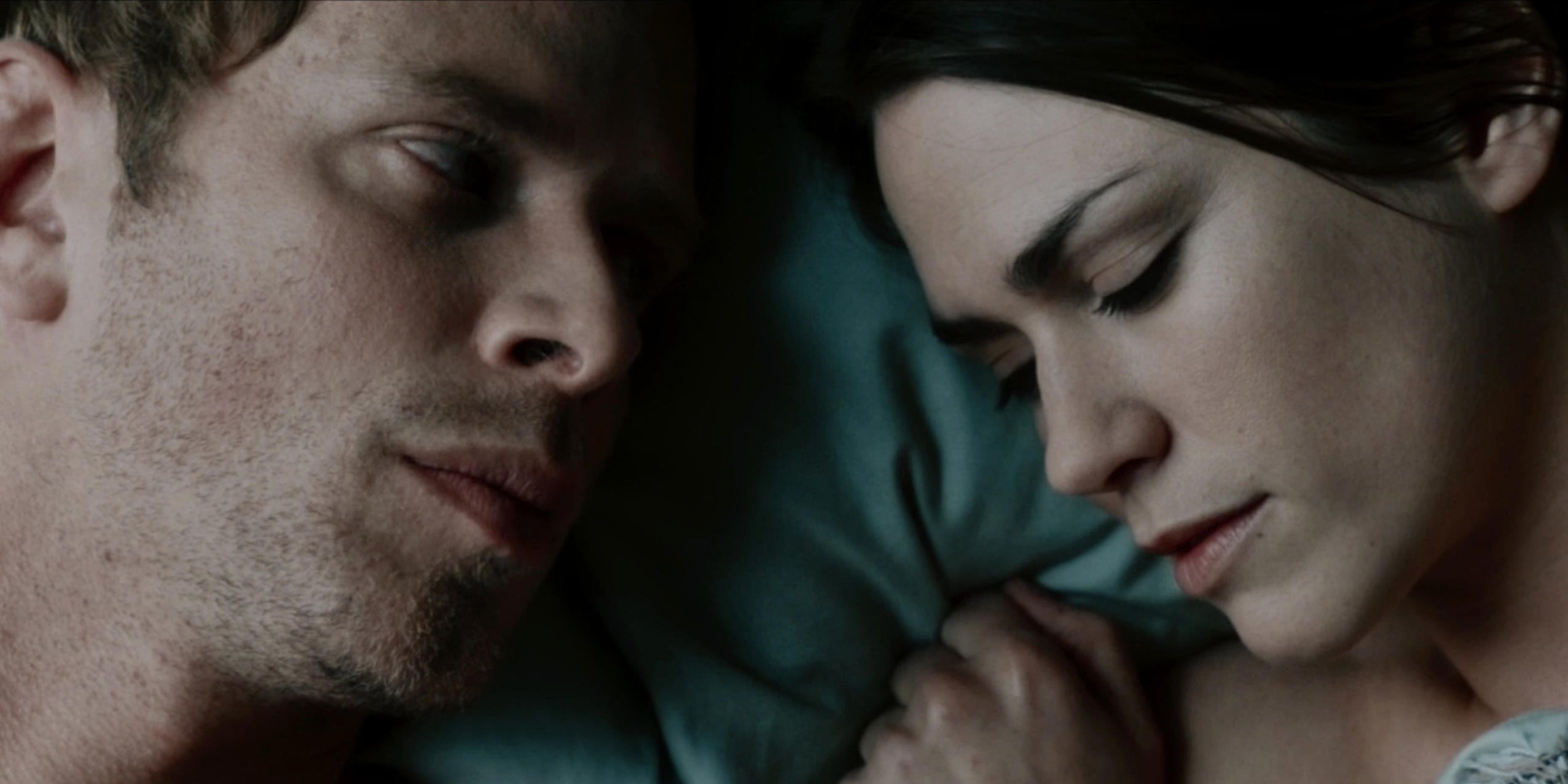 Cinema’s greatest tragicomic absurdist love story opens with a talking (beheaded) fish; Villeneuve’s weirdest film is unlike any other film in his filmography and most other films, period. How much you vibe with its offbeat swagger will determine if that’s a blessing or a curse, but you can see Villeneuve trying to stretch and find new ways to express his ideas. Like “August 32nd,” we follow a woman on a traumatized search for meaning; the owner of a chain of hip fashion shops, Bibiane Champagne (Marie-Josée Croze), is increasingly guilty of having an abortion and, in her distress, accidentally runs over and kills a fishmonger while driving. This kicks off a jigsaw plot that snakes between interconnected points of view and chance encounters in league with other then-recent mosaics like Paul Thomas Anderon’s “Magnolia” or Edward Yang’s “Mahjong,” as commentary on the deep loneliness and morally confused nature of modernity –– a topic Villeneuve will return to again and again.
Cinema’s greatest tragicomic absurdist love story opens with a talking (beheaded) fish; Villeneuve’s weirdest film is unlike any other film in his filmography and most other films, period. How much you vibe with its offbeat swagger will determine if that’s a blessing or a curse, but you can see Villeneuve trying to stretch and find new ways to express his ideas. Like “August 32nd,” we follow a woman on a traumatized search for meaning; the owner of a chain of hip fashion shops, Bibiane Champagne (Marie-Josée Croze), is increasingly guilty of having an abortion and, in her distress, accidentally runs over and kills a fishmonger while driving. This kicks off a jigsaw plot that snakes between interconnected points of view and chance encounters in league with other then-recent mosaics like Paul Thomas Anderon’s “Magnolia” or Edward Yang’s “Mahjong,” as commentary on the deep loneliness and morally confused nature of modernity –– a topic Villeneuve will return to again and again.
9. “Polytechnique” (2009)
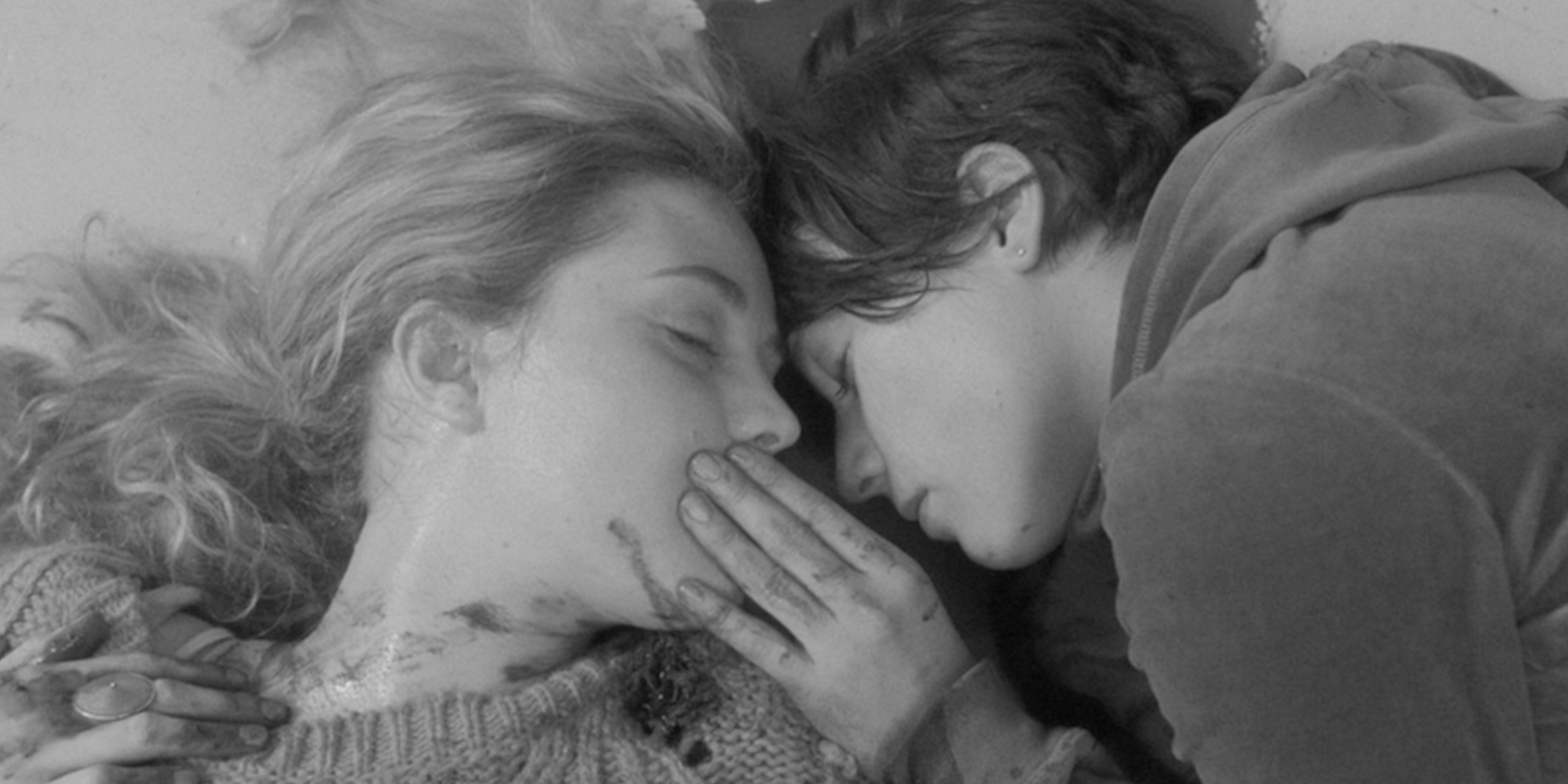 Villeneuve’s fictionalized depiction of the infamous École Polytechnique massacre hits with unsettling prescience in 2024, depicting mass shooter Marc Lépine’s university rampage that left 14 women dead and another 14 injured. At release in 2009, we hadn’t yet hit the epidemic levels of shootings throughout North America, and Villeneuve’s portrait of an “incel” who marches into a campus to murder women is devastatingly familiar. We also see a filmmaker mature with his subject, abandoning the light-and-dark playfulness of his first two features for a sober and visually sophisticated portrayal of real events, finding an original formal approach that avoids cliches. “Polytechnique” is neither a morose docudrama nor a gripping thriller, instead a sometimes imperfect but still respectful incisive depiction of these events and those in it. “Polytechnique” is also the first time we see Villeneuve seize his repeated approach of creating tension by slowing things down, moving between spaces deliberately for maximum build-up.
Villeneuve’s fictionalized depiction of the infamous École Polytechnique massacre hits with unsettling prescience in 2024, depicting mass shooter Marc Lépine’s university rampage that left 14 women dead and another 14 injured. At release in 2009, we hadn’t yet hit the epidemic levels of shootings throughout North America, and Villeneuve’s portrait of an “incel” who marches into a campus to murder women is devastatingly familiar. We also see a filmmaker mature with his subject, abandoning the light-and-dark playfulness of his first two features for a sober and visually sophisticated portrayal of real events, finding an original formal approach that avoids cliches. “Polytechnique” is neither a morose docudrama nor a gripping thriller, instead a sometimes imperfect but still respectful incisive depiction of these events and those in it. “Polytechnique” is also the first time we see Villeneuve seize his repeated approach of creating tension by slowing things down, moving between spaces deliberately for maximum build-up.
8. “Enemy” (2013)
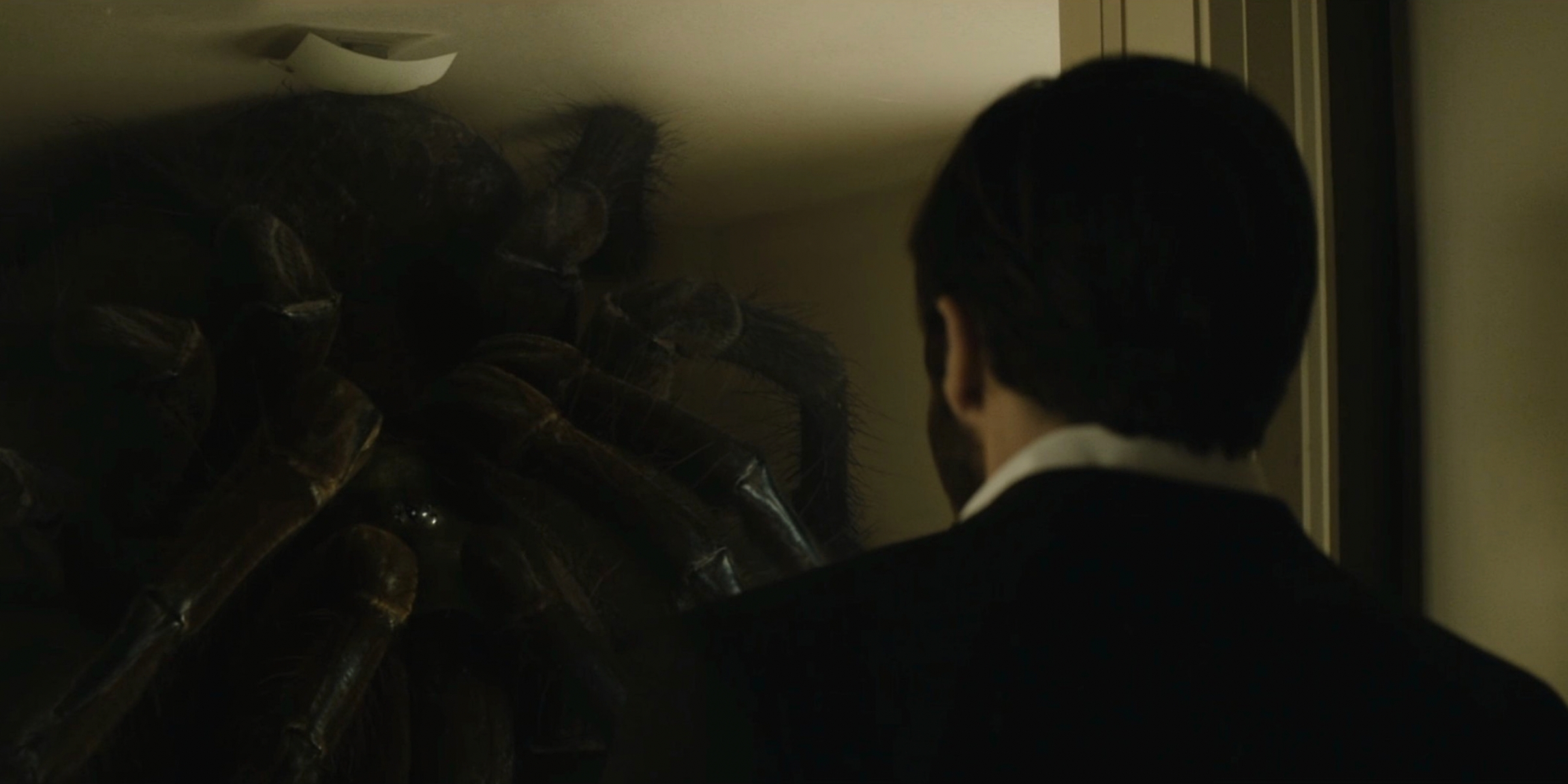 With Jake Gyllenhall playing doppelgängers who become obsessed with each other in a city dream space full of spiders, “Enemy” marks Villeneuve’s transition from Canadian independent cinema and into the arena of Hollywood. Although released after his break-out hit “Prisoners,” “Enemy” was shot beforehand, starring an American movie star (Gyllenhall) and sold to A24 for distribution. Full of nightmarish shots of Toronto in shades of sickly yellows, “Enemy” is always visually striking, even as it risks indulging in the kind of surrealism that risks being reductively literal. The screenplay constantly signals Freudian and fascist themes even as the storytelling becomes increasingly opaque: there’s a lecture on Hegel and Marx’s theories of history (it repeats), one of Gyllenhaal’s twins announces, “It’s all about control” and another shouts “You don’t think I’m a man?” So why isn’t “Enemy” lower on the list? Watching The Two Jakes stand-off is a spectacle of pure performance, and the noxious atmosphere, giving the feeling of wading through a poisoned concrete jungle, sticks to you long after the credits roll.
With Jake Gyllenhall playing doppelgängers who become obsessed with each other in a city dream space full of spiders, “Enemy” marks Villeneuve’s transition from Canadian independent cinema and into the arena of Hollywood. Although released after his break-out hit “Prisoners,” “Enemy” was shot beforehand, starring an American movie star (Gyllenhall) and sold to A24 for distribution. Full of nightmarish shots of Toronto in shades of sickly yellows, “Enemy” is always visually striking, even as it risks indulging in the kind of surrealism that risks being reductively literal. The screenplay constantly signals Freudian and fascist themes even as the storytelling becomes increasingly opaque: there’s a lecture on Hegel and Marx’s theories of history (it repeats), one of Gyllenhaal’s twins announces, “It’s all about control” and another shouts “You don’t think I’m a man?” So why isn’t “Enemy” lower on the list? Watching The Two Jakes stand-off is a spectacle of pure performance, and the noxious atmosphere, giving the feeling of wading through a poisoned concrete jungle, sticks to you long after the credits roll.
7. “Dune” (2021)
 It feels a little selfish to be too harsh towards Villeneuve’s often magnificent and always stunning adaptation of “Dune.” For one thing, Herbert’s novel has been long described as impossible to adapt and with reason. There’s more sci-fi lore packed into its 700 pages than there is history in “War and Peace,” and much of the character development (and, therefore, the book’s emotional core) unfolds inside the minds of the characters rather than the plot or dialogue. It’s a cautionary tale of T.E. Lawrence in space, and Villeneuve’s adaptation of the Atreides saga loses some of Herbert’s psychedelic strangeness to make a slightly austere but thrillingly tactile take on the material. What I love most about Villeneuve’s “Dune” is how it grounds classic sci-fi sights and sounds that risk goofiness (Towering ships! Witchy voices! Worms! Laser beams!) into an unusually credible reality, and the action, wrought on a truly epic scale, can overwhelm with its sheer audio-visual power. But there’s a structural wonkiness in dividing the book in half (the last hour is a series of episodic chase sequences that rush to an awkward climax), and without access to Paul’s inner thoughts and taken with Chalamet’s phlegmatic performance, “Dune” can feel distant. Yet, when brainy, big-budget sci-fi is done with this level of thought, beauty, and care, I can’t help but be thrilled, especially when it’s this rewatchable.
It feels a little selfish to be too harsh towards Villeneuve’s often magnificent and always stunning adaptation of “Dune.” For one thing, Herbert’s novel has been long described as impossible to adapt and with reason. There’s more sci-fi lore packed into its 700 pages than there is history in “War and Peace,” and much of the character development (and, therefore, the book’s emotional core) unfolds inside the minds of the characters rather than the plot or dialogue. It’s a cautionary tale of T.E. Lawrence in space, and Villeneuve’s adaptation of the Atreides saga loses some of Herbert’s psychedelic strangeness to make a slightly austere but thrillingly tactile take on the material. What I love most about Villeneuve’s “Dune” is how it grounds classic sci-fi sights and sounds that risk goofiness (Towering ships! Witchy voices! Worms! Laser beams!) into an unusually credible reality, and the action, wrought on a truly epic scale, can overwhelm with its sheer audio-visual power. But there’s a structural wonkiness in dividing the book in half (the last hour is a series of episodic chase sequences that rush to an awkward climax), and without access to Paul’s inner thoughts and taken with Chalamet’s phlegmatic performance, “Dune” can feel distant. Yet, when brainy, big-budget sci-fi is done with this level of thought, beauty, and care, I can’t help but be thrilled, especially when it’s this rewatchable.
6. “Incendies” (2010)
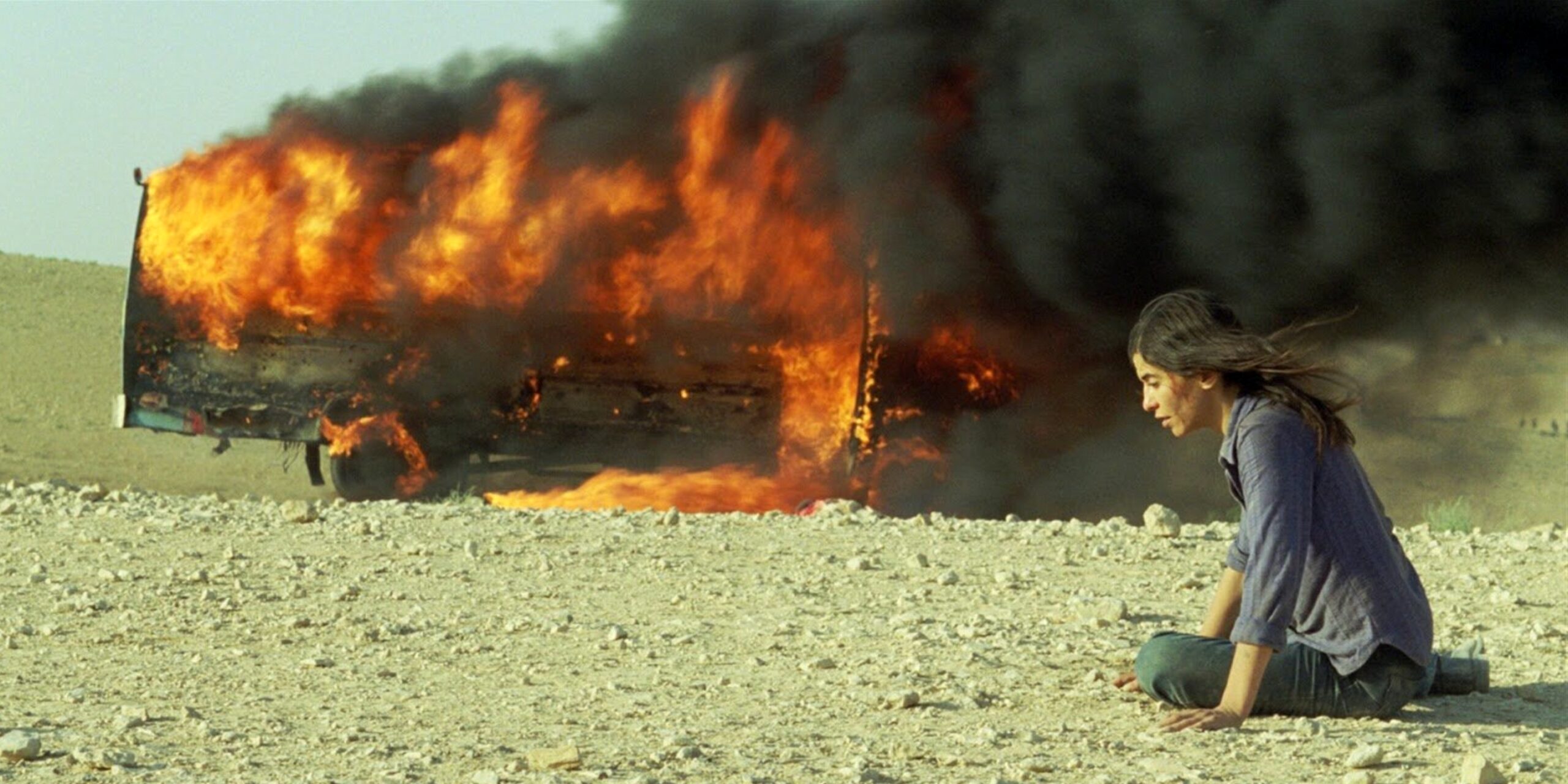 Villeneuve’s first Oscar-nominated feature deftly slips between genres: in turns, “Incendies” is a noirish family mystery, a travelogue war film, and a Greek tragedy. Villeneuve and co-writer Valérie Beaugrand-Champagne’s adaptation of Wajdi Mouawad’s play follows two twins carrying out their recently deceased mother’s burdensome final wishes; they must locate a lost brother and missing father in their mother’s unnamed Levantine country of origin. The children learn their mother, a Christian Arab, fell in love with and was impregnated by a Muslim, igniting a war between faiths and cultures. We follow this family trial across generations, cycling through past and present as mother and daughter, decades apart, walk in the same footsteps. As Ebert flagged, narrative contrivance ripples through “Incendies.” Still, its storytelling is at its most potent and persuasive when those moments are cross-cut and become tethered through time, priming us for a devastating climax that made waves at release. Steven Spielberg once called his 2005 spy thriller “Munich” a prayer for peace. By using one family’s secret history to capture the cycles of violence that erupt from political and religious differences, “Incendies” does just the same.
Villeneuve’s first Oscar-nominated feature deftly slips between genres: in turns, “Incendies” is a noirish family mystery, a travelogue war film, and a Greek tragedy. Villeneuve and co-writer Valérie Beaugrand-Champagne’s adaptation of Wajdi Mouawad’s play follows two twins carrying out their recently deceased mother’s burdensome final wishes; they must locate a lost brother and missing father in their mother’s unnamed Levantine country of origin. The children learn their mother, a Christian Arab, fell in love with and was impregnated by a Muslim, igniting a war between faiths and cultures. We follow this family trial across generations, cycling through past and present as mother and daughter, decades apart, walk in the same footsteps. As Ebert flagged, narrative contrivance ripples through “Incendies.” Still, its storytelling is at its most potent and persuasive when those moments are cross-cut and become tethered through time, priming us for a devastating climax that made waves at release. Steven Spielberg once called his 2005 spy thriller “Munich” a prayer for peace. By using one family’s secret history to capture the cycles of violence that erupt from political and religious differences, “Incendies” does just the same.
5. “Dune: Part Two” (2024)
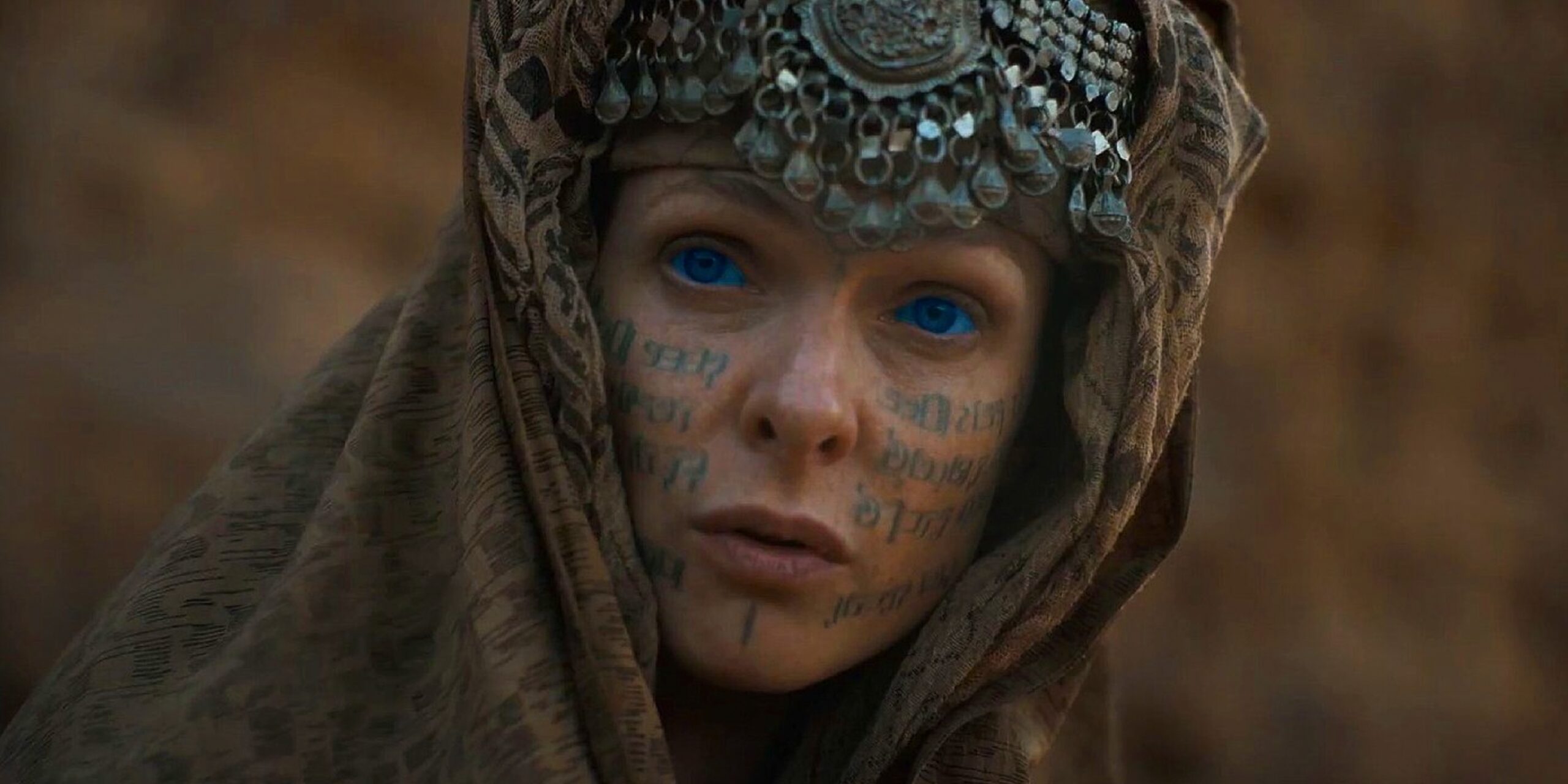 If Villeneuve’s career has been one slow build of apocalyptic menace, “Dune: Part Two” is where he fully unleashes it. One of the weirdest and most harrowing blockbusters I’ve seen (one of the first shots is of a semi-conscious fetus), Villeneuve’s promises that his “Dune” sequel will have more action and romance betrays the deep unpleasantness drifting through the narrative sands. “Dune: Part Two” plays less as a grand adventure than a march of religious doom, acting as a bitter warning towards fundamentalist fanaticism of any creed, and the danger of good intentions left under-examined, not even during the brilliantly staged guerilla attacks on spice harvesters do you think this will end well. Meanwhile, Greig Fraser’s images are so vast and detailed they could fill a wall-sized fresco at an art museum, Hans Zimmer’s excellent score pivots between hymnal voices, industrial screams, and romantic suites turned sour, while Chalamet’s transformation from a sullen duke’s son to messianic figure is terrifying. But like the first “Dune,” turning the middle of a book into the climax of one movie and approximately two hours of another makes for craggy pacing, and in streamlining the storytelling, some nuance and complexity have been lost. At its worst, “Dune: Part Two” can seem more like a caricature of religious fanaticism than a deconstruction of it. I’m hopeful future viewings may smooth over those quibbles, and like the first “Dune,” so much is done so gobsmackingly well; Villeneuve’s spice-tinged epic still stands as a peak of what great big-budget sci-fi should aspire to be.
If Villeneuve’s career has been one slow build of apocalyptic menace, “Dune: Part Two” is where he fully unleashes it. One of the weirdest and most harrowing blockbusters I’ve seen (one of the first shots is of a semi-conscious fetus), Villeneuve’s promises that his “Dune” sequel will have more action and romance betrays the deep unpleasantness drifting through the narrative sands. “Dune: Part Two” plays less as a grand adventure than a march of religious doom, acting as a bitter warning towards fundamentalist fanaticism of any creed, and the danger of good intentions left under-examined, not even during the brilliantly staged guerilla attacks on spice harvesters do you think this will end well. Meanwhile, Greig Fraser’s images are so vast and detailed they could fill a wall-sized fresco at an art museum, Hans Zimmer’s excellent score pivots between hymnal voices, industrial screams, and romantic suites turned sour, while Chalamet’s transformation from a sullen duke’s son to messianic figure is terrifying. But like the first “Dune,” turning the middle of a book into the climax of one movie and approximately two hours of another makes for craggy pacing, and in streamlining the storytelling, some nuance and complexity have been lost. At its worst, “Dune: Part Two” can seem more like a caricature of religious fanaticism than a deconstruction of it. I’m hopeful future viewings may smooth over those quibbles, and like the first “Dune,” so much is done so gobsmackingly well; Villeneuve’s spice-tinged epic still stands as a peak of what great big-budget sci-fi should aspire to be.
4. “Prisoners” (2013)
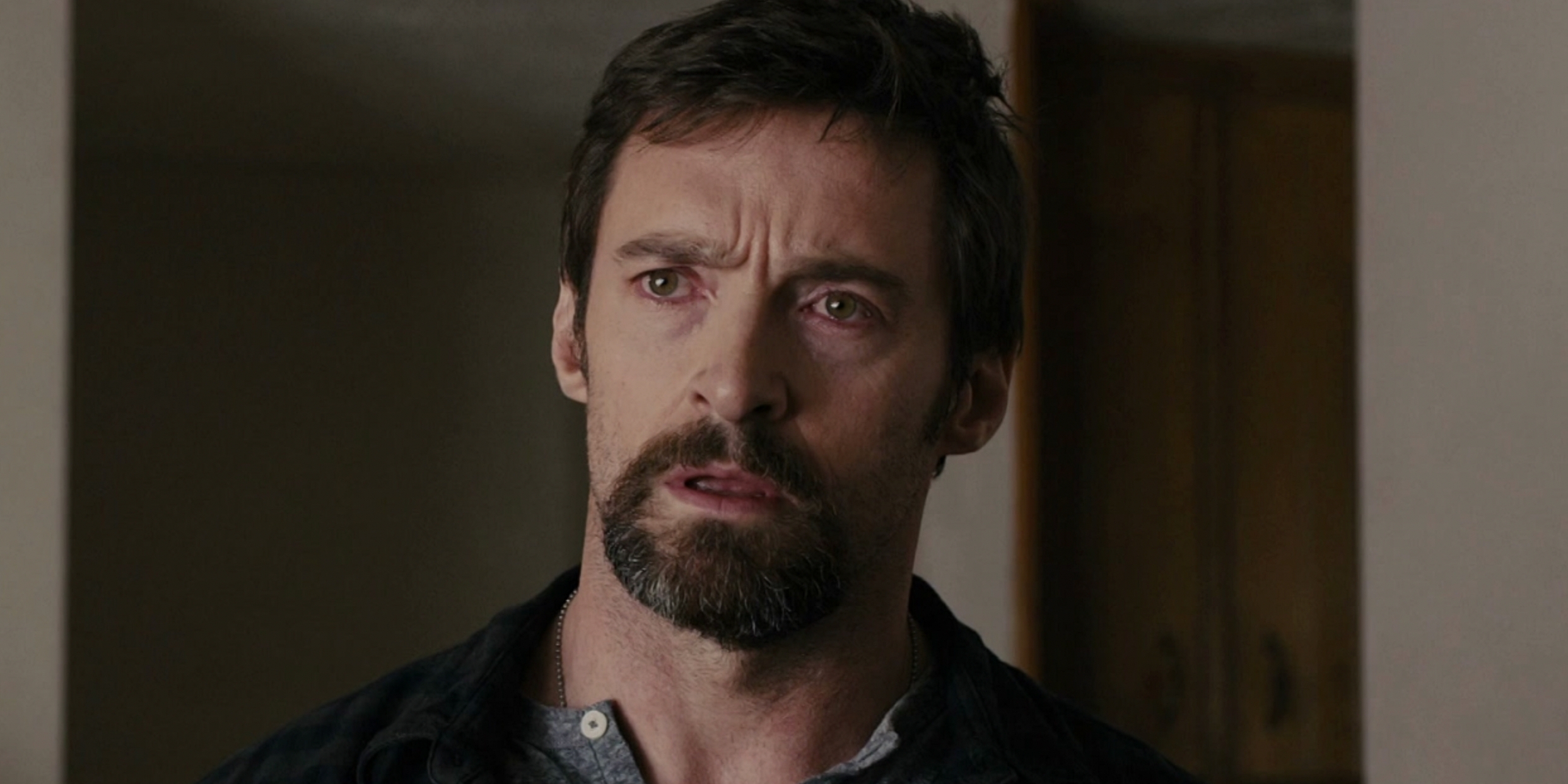 I first became fully aware of Denis Villeneuve in 2013 as film circles began to buzz that there was a new thriller that played like David Fincher’s “Seven” meets “Zodiac.” That description doesn’t do “Prisoners” justice, which moodily (and in another allegorical contrivance) channels the wars of the Middle East into a suburban sprawl of white-fence bi-level homes and trashed-out apartment complexes. It’s a heightened neo-noir made for adults, boasting a particularly stacked cast, ranging from Jake Gyllenhall to Hugh Jackman and Viola Davis (all excellent) and shot in crisp autumnal hues by Roger Deakins. Two girls have gone missing, and what follows is yet another dual narrative, following Detective Loki’s (Gyllenhaal) investigation as we witness the terrifying extremes –– including torture –– parents (or a country) will go to when they’re under threat. It’s a bracing and even punishing watch, but Villeneuve’s stylistic ethos has rarely been so matched to the material, probing the survivalist conservative mindset and the motivations of religious fanaticism almost a decade before he traveled to the dunes of Arrakis.
I first became fully aware of Denis Villeneuve in 2013 as film circles began to buzz that there was a new thriller that played like David Fincher’s “Seven” meets “Zodiac.” That description doesn’t do “Prisoners” justice, which moodily (and in another allegorical contrivance) channels the wars of the Middle East into a suburban sprawl of white-fence bi-level homes and trashed-out apartment complexes. It’s a heightened neo-noir made for adults, boasting a particularly stacked cast, ranging from Jake Gyllenhall to Hugh Jackman and Viola Davis (all excellent) and shot in crisp autumnal hues by Roger Deakins. Two girls have gone missing, and what follows is yet another dual narrative, following Detective Loki’s (Gyllenhaal) investigation as we witness the terrifying extremes –– including torture –– parents (or a country) will go to when they’re under threat. It’s a bracing and even punishing watch, but Villeneuve’s stylistic ethos has rarely been so matched to the material, probing the survivalist conservative mindset and the motivations of religious fanaticism almost a decade before he traveled to the dunes of Arrakis.
3. “Sicario” (2015)
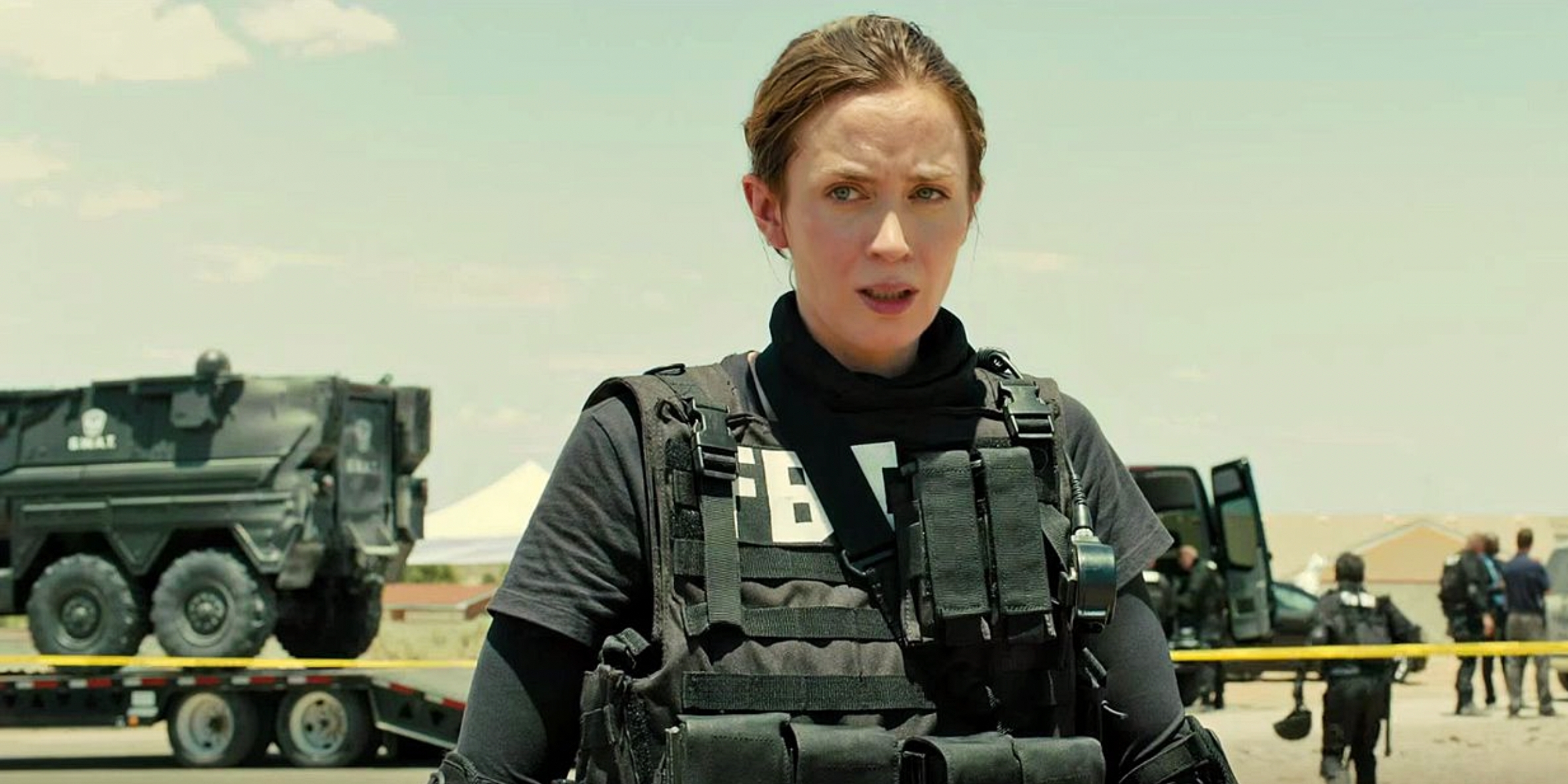 Josh Brollin’s CIA spook chills wearing flip flops and drinks tasty beverages (shirtless) as he wages an illegal militarized war against the cartel to battle the “war on drugs.” His number two is a Colombian hitman (Benicio Del Toro), and when he’s not in head-to-toe black assassin chic, he wears designer suits wrinkled from traveling by private jet. They recruit an unsuspecting FBI agent (Emily Blunt) for an inter-agency task force to gain the thinnest veneer of legal justification. Such is the plot of “Sicario,” a crackerjack thriller of unapologetic pulp that also serves as a fascinating collision of sensibilities. Taylor Sheridan’s screenplay depicts the war on drugs as a right-wing fear-mongering fever dream; bodies are stuffed in the drywall of houses along the U.S.-Mexico border, Ciudad Juárez is a colosseum of barbarism and pain, and all we can do to combat the cartels is infinite escalation. Yet, Villeneuve is clearly most interested in painting as damning a portrait of U.S. extralegal violence as possible, and alongside the technically masterful set-pieces, it’s that friction that gives “Sicario” its Hobbesian bite.
Josh Brollin’s CIA spook chills wearing flip flops and drinks tasty beverages (shirtless) as he wages an illegal militarized war against the cartel to battle the “war on drugs.” His number two is a Colombian hitman (Benicio Del Toro), and when he’s not in head-to-toe black assassin chic, he wears designer suits wrinkled from traveling by private jet. They recruit an unsuspecting FBI agent (Emily Blunt) for an inter-agency task force to gain the thinnest veneer of legal justification. Such is the plot of “Sicario,” a crackerjack thriller of unapologetic pulp that also serves as a fascinating collision of sensibilities. Taylor Sheridan’s screenplay depicts the war on drugs as a right-wing fear-mongering fever dream; bodies are stuffed in the drywall of houses along the U.S.-Mexico border, Ciudad Juárez is a colosseum of barbarism and pain, and all we can do to combat the cartels is infinite escalation. Yet, Villeneuve is clearly most interested in painting as damning a portrait of U.S. extralegal violence as possible, and alongside the technically masterful set-pieces, it’s that friction that gives “Sicario” its Hobbesian bite.
2. “Arrival” (2016)
 Not to get personal, but I saw “Arrival” at the Chicago International Film Festival about six months after my mom died, and it felt like it was a movie made only for me in that impossible moment. Adapted from Ted Chiang’s great short story “Story of Your Life,” there’s a lot in Villeneuve’s cinematic take of alien first contact that’s also just wonderful: the aliens actually feel alien, Bradford Young’s dusk-toned cinematography is “dim” imagery done right, and Jóhann Jóhannsson’s score of ethereal chorals summons the perfect otherworldly mood. The Kuleshov-effect-like editing cleverly evokes the plot’s heady storytelling, where style and story intermingle. But the film’s real achievement is how it turns a movie about two hot nerds (Amy Adams and Jeremy Renner) trying to talk to aliens into a sweeping emotional experience, binding together themes around life, time, and death into purely expressed cinematic feeling. I know more than one person who says “Arrival” helped them process their grief, making it one of the rare movies to actually contain some practical, almost stoic guidance on how to find lasting meaning in the face of our mortal coil.
Not to get personal, but I saw “Arrival” at the Chicago International Film Festival about six months after my mom died, and it felt like it was a movie made only for me in that impossible moment. Adapted from Ted Chiang’s great short story “Story of Your Life,” there’s a lot in Villeneuve’s cinematic take of alien first contact that’s also just wonderful: the aliens actually feel alien, Bradford Young’s dusk-toned cinematography is “dim” imagery done right, and Jóhann Jóhannsson’s score of ethereal chorals summons the perfect otherworldly mood. The Kuleshov-effect-like editing cleverly evokes the plot’s heady storytelling, where style and story intermingle. But the film’s real achievement is how it turns a movie about two hot nerds (Amy Adams and Jeremy Renner) trying to talk to aliens into a sweeping emotional experience, binding together themes around life, time, and death into purely expressed cinematic feeling. I know more than one person who says “Arrival” helped them process their grief, making it one of the rare movies to actually contain some practical, almost stoic guidance on how to find lasting meaning in the face of our mortal coil.
1. “Blade Runner 2049” (2017)
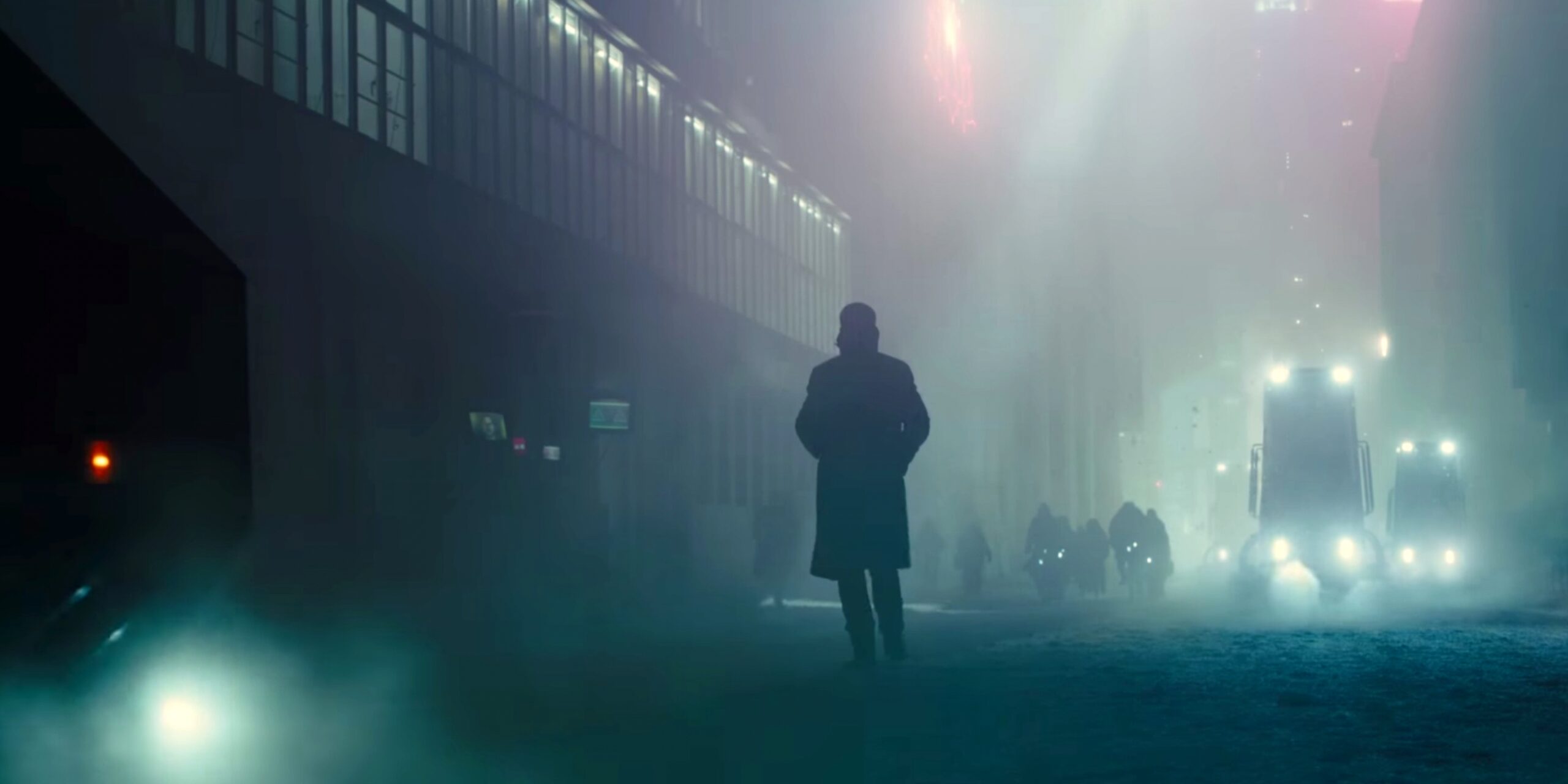 Like “Mad Max: Fury Road” or “Twin Peaks: The Return,” “Blade Runner 2049” simply should not exist. While watching it, all you can do is marvel, “A major studio paid for this.” And despite the hubris of making a sequel to a seminal classic, miraculously, it was incredible. Ryan Gosling’s strictly controlled replicant “K” is on the job to find and kill a replicant child to “stop a war.” He has a digital girlfriend (Ana de Armas). They’re chased by a villainous replicant, Luv (Sylvia Hoeks). We don’t know to what degree of real agency or consciousness they possess. “Blade Runner 2049” succeeds by expanding on the themes of the original into bold new philosophical directions, with a saturnine plot Villeneuve directs almost as Slow Cinema by way of “Chinatown” (there are many scenes of people walking slowly through rooms) plunging into the pits of artificial minds and seeing what’s there. If the first “Blade Runner” is a mournful tone poem about confronting god and mortality, “Blade Runner 2049” is about surpassing the limits of our programming –– the “alphabet of you” –– and seeing if we can ascend. The ending makes me cry, and “Blade Runner 2049” shows Villeneuve at his most maximalist, most tender, and most technically precise. It’s a masterpiece.
Like “Mad Max: Fury Road” or “Twin Peaks: The Return,” “Blade Runner 2049” simply should not exist. While watching it, all you can do is marvel, “A major studio paid for this.” And despite the hubris of making a sequel to a seminal classic, miraculously, it was incredible. Ryan Gosling’s strictly controlled replicant “K” is on the job to find and kill a replicant child to “stop a war.” He has a digital girlfriend (Ana de Armas). They’re chased by a villainous replicant, Luv (Sylvia Hoeks). We don’t know to what degree of real agency or consciousness they possess. “Blade Runner 2049” succeeds by expanding on the themes of the original into bold new philosophical directions, with a saturnine plot Villeneuve directs almost as Slow Cinema by way of “Chinatown” (there are many scenes of people walking slowly through rooms) plunging into the pits of artificial minds and seeing what’s there. If the first “Blade Runner” is a mournful tone poem about confronting god and mortality, “Blade Runner 2049” is about surpassing the limits of our programming –– the “alphabet of you” –– and seeing if we can ascend. The ending makes me cry, and “Blade Runner 2049” shows Villeneuve at his most maximalist, most tender, and most technically precise. It’s a masterpiece.
What do you think of our list? What is your favorite film directed by Denis Villeneuve? Have you seen “Dune: Part Two“ yet? If so, what did you think? Please let us know your thoughts in the comments section below or on our Twitter account.


